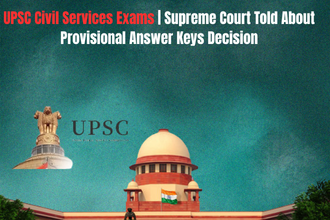In a significant move towards ensuring safer workplaces for women, the Supreme Court of India has recently directed all States and Union Territories to file follow-up affidavits confirming their compliance with the Sexual Harassment of Women at Workplace (Prevention, Prohibition, and Redressal) Act, 2013 (POSH Act). The order, passed on April 26, 2025, reflects the Court’s firm stance on the full implementation of its earlier directions issued on December 3, 2024.
This step marks a crucial moment in strengthening workplace safety norms across the country. Here’s a detailed breakdown of the Supreme Court’s directions, their implications, and the current status of compliance by States and UTs.
Background: Supreme Court’s December 2024 Directions
On December 3, 2024, a bench comprising Justices BV Nagarathna and NK Singh issued comprehensive instructions to ensure the proper enforcement of the POSH Act. The key highlights of these directions included:
- Appointment of District Officers: Chief Secretaries were tasked with appointing District Officers responsible for overseeing POSH Act compliance by December 31, 2024.
- Constitution of Local Committees: District Officers were ordered to form or reconstitute Local Committees where needed by January 31, 2025.
- Internal Complaints Committees (ICCs): All government departments, public sector units, and bodies under State or Union Territory control were directed to establish or revamp their ICCs in line with Section 4 of the POSH Act by January 31, 2025.
- Central Government Compliance: Similar directions were issued to the Union of India to ensure ICCs in Central government workplaces.
- Legal Aid: Legal Services Authorities at all levels were directed to assist women filing complaints under the Act.
States and UTs were initially required to submit compliance affidavits by the first week of February 2025.
Why the Follow-Up?
Despite these firm instructions, compliance across the country has been mixed. Amicus Curiae Padma Priya submitted a status report revealing that while many States and UTs have substantially complied, several regions showed unclear or incomplete compliance.
In particular, States and UTs like Jammu & Kashmir, Jharkhand, Kerala, Mizoram, Punjab, Nagaland, Puducherry, and Uttarakhand have not provided a clear record of following through with the required actions.
The Court, observing that merely issuing directions without concrete implementation would serve no purpose, has now demanded follow-up affidavits demonstrating actual compliance at the ground level.
Key Points from the April 2025 Order
- Mandatory Follow-Up Affidavits: All States and Union Territories must file fresh affidavits indicating:
- Constitution of Internal Complaints Committees.
- Appointment of District and Nodal Officers.
- Constitution or reconstitution of Local Committees.
- Details of Nodal Officers: States and UTs are directed to not only appoint Nodal Officers but also publish their details on official websites and mention these in the new affidavits.
- Deadline for Compliance: The follow-up affidavits must be filed by May 9, 2025.
- Virtual Conference on Best Practices: On May 3, 2025, a virtual meeting will be held between representatives of the Department of Women and Child Development from all States/UTs, the Union Government, and petitioner’s counsel. The goal is to share best practices and enhance nationwide implementation.
States and UTs That Have Substantially Complied
As per the amicus curiae’s report, the following have largely complied with the directions:
- Union Territories: Andaman & Nicobar Islands, Chandigarh, Ladakh, Lakshadweep.
- States: Andhra Pradesh, Assam, Bihar, Chhattisgarh, Delhi, Goa, Gujarat, Haryana, Himachal Pradesh, Karnataka, Madhya Pradesh, Maharashtra, Manipur, Meghalaya, Odisha, Rajasthan, Sikkim, Tamil Nadu, Telangana, Tripura, Uttar Pradesh, West Bengal.
Their adherence sets a positive example, but full nationwide compliance is still awaited.
States and UTs Where Compliance is Unclear
Compliance status remains ambiguous for:
- Jammu & Kashmir
- Jharkhand
- Kerala
- Mizoram
- Punjab
- Nagaland
- Puducherry
- Uttarakhand
These States/UTs are now under greater scrutiny and must provide detailed affidavits to prove compliance by the given deadline.
Importance of the POSH Act and Supreme Court’s Role
The POSH Act, 2013 is a landmark legislation aimed at creating a safe working environment for women. It mandates setting up Internal Complaints Committees and Local Committees to address grievances related to sexual harassment at workplaces.
Despite the Act being in force for over a decade, its implementation has often been inconsistent across India. The Supreme Court’s proactive stance ensures:
- Accountability of government departments.
- Empowerment of women to seek redressal.
- Creation of awareness and operational frameworks for complaint resolution.
As Justice BR Gavai rightly said, “It is not enough to have rights unless citizens are made aware of their rights and seek enforcement.”
The Court’s insistence on real compliance, not just paperwork, is a major step toward achieving the Act’s true purpose.
What Happens Next?
If any State or UT fails to file the required follow-up affidavit by May 9, 2025, or if it is found lacking in compliance, the Court may impose penalties, initiate contempt proceedings, or take other necessary steps.
The upcoming virtual conference on May 3 will also play a critical role in streamlining efforts and sharing success stories, ensuring that all regions have the necessary tools and knowledge to fulfill the POSH Act’s objectives.
Conclusion
The Supreme Court’s latest order reaffirms that workplace safety for women is a non-negotiable priority. States and Union Territories must act swiftly, not just to comply with court orders but to foster an environment where women feel secure and empowered at their workplaces.
With stringent follow-ups, cross-governmental collaboration, and greater transparency, India moves closer to making gender-sensitive workplaces a reality rather than a distant ideal.


